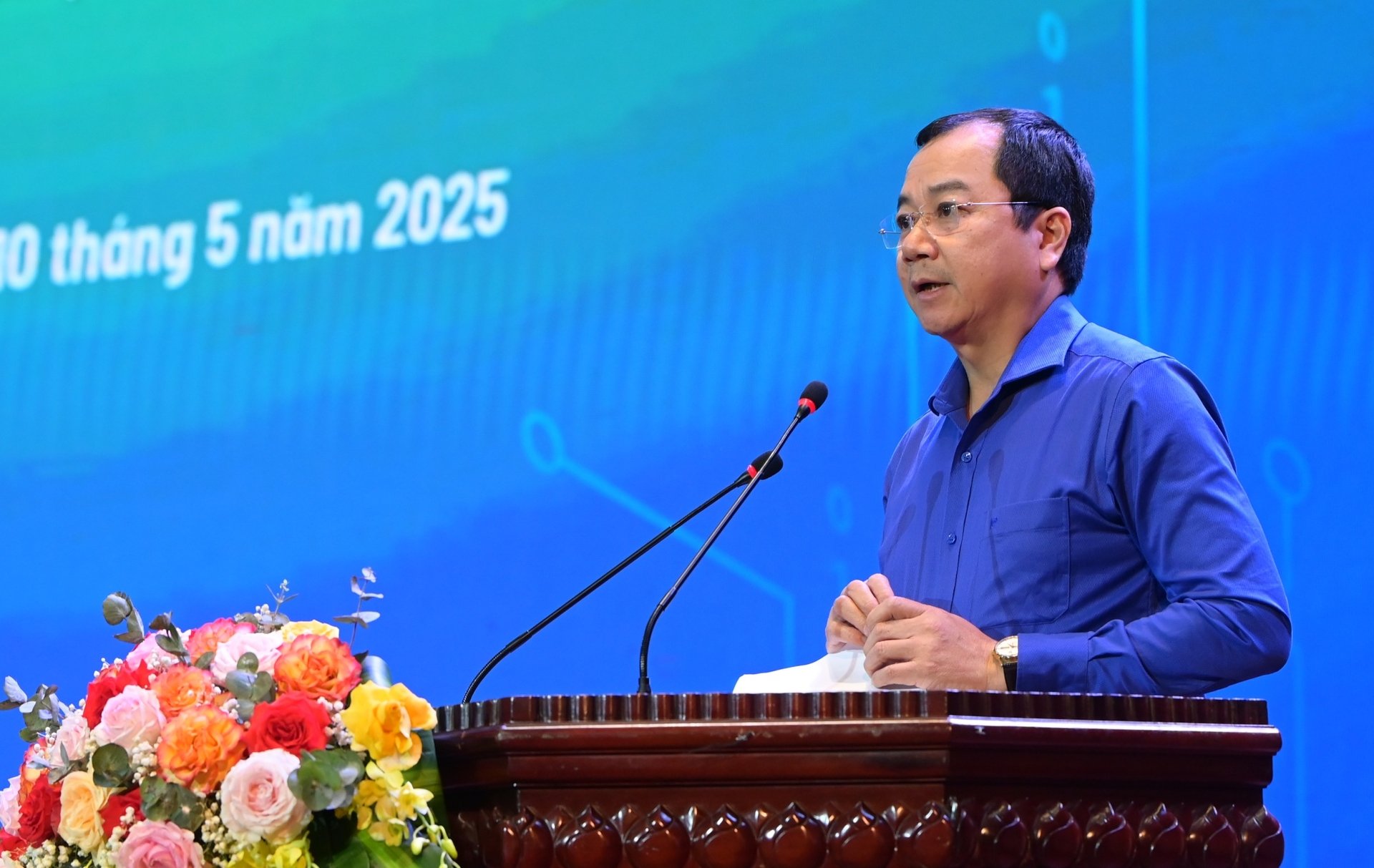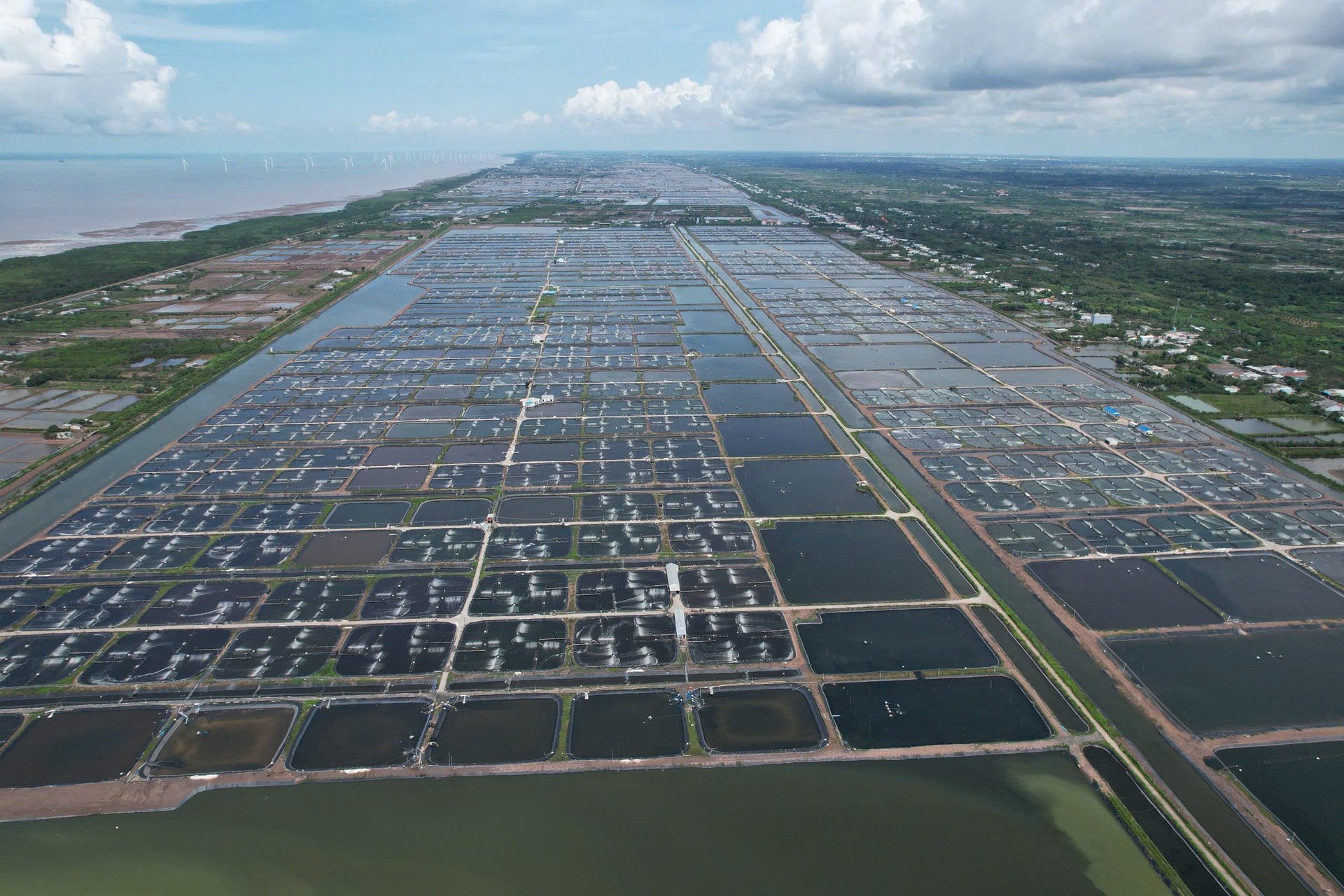June 14, 2025 | 21:12 GMT +7
June 14, 2025 | 21:12 GMT +7
Hotline: 0913.378.918
June 14, 2025 | 21:12 GMT +7
Hotline: 0913.378.918
Summarizing Thematic Session 2 on Livestock and Veterinary Sciences, Aquaculture and Fisheries Surveillance, held as part of the Conference on the "Plan for implementing Resolution No. 57-NQ/TW of the Politburo on breakthroughs in the development of science, technology, innovation, and national digital transformation", along with relevant documents from the agriculture and environmental sectors on the afternoon of May 10 in Bac Ninh, Director General of the Directorate of Fisheries, Mr. Tran Dinh Luan, stated that the session featured eight presentations and over 10 contributions addressing the fields of livestock, veterinary medicine, aquaculture, and fisheries surveillance.
The reports highlighted the current state of the livestock and aquaculture sectors, particularly focusing on key species such as pigs, poultry, shrimp, pangasius, and marine farming, as well as recent developments regarding animal and aquatic disease outbreaks.

Mr. Tran Dinh Luan, Director General of the Directorate of Fisheries, stated that the thematic session featured 8 presentations and more than 10 contributions focusing on the fields of livestock and veterinary medicine, as well as aquaculture and fisheries surveillance. Photo: Tung Dinh.
In response to the various opinions raised, relevant units have proposed appropriate directions and implementation measures for the near future. These were heartfelt contributions, with particularly high praise for Resolution No. 57-NQ/TW and Decision No. 503/QD-BNNMT.
According to the leadership of the Directorate of Fisheries, during this afternoon's thematic session, the Department of Livestock Production and Animal Health, along with the Directorate of Fisheries, presented their implementation plan for Decision No. 503/QD-BNNMT. They also clearly outlined the direction for coordination among research institutes, universities, and scientists. The goal is to join efforts in realizing the aspiration of Minister of Agriculture and Environment Do Duc Duy to improve the productivity, quality, and efficiency of agricultural production in the coming time.
After the Conference, policymakers, research institutes, universities, and businesses will convene to conduct detailed reviews of each livestock and aquaculture species group.
It is necessary to clearly define research directions aimed at improving productivity and quality in the livestock sector, such as pigs, chickens, and other animals.
In aquaculture, particularly shrimp, fish, and marine farming, enterprises and research institutions must clearly delineate responsibilities. This will serve as a basis for building effective coordination mechanisms, thereby enabling the successful implementation of the key tasks outlined in Resolution No. 57-NQ/TW in the coming period.
Director General Tran Dinh Luan emphasized that the session recorded many heartfelt recommendations from policymakers and scientists, focusing on the following key points:
First, the recommendations highlighted the need to improve mechanisms that encourage cooperation among scientists, research institutions, and businesses in transferring science and technology.
Second, streamlining administrative procedures. Minister Do Duc Duy emphasized that this measure removes barriers and creates favorable conditions for research collaboration and the effective application of scientific results in practice.
Third, enterprises should be encouraged to apply and develop high-tech agriculture, including tax and fee exemptions or reductions.
Fourth, conducting research and improving public investment mechanisms to support upgrading research infrastructure in ministries, sectors, and localities. Currently, capacity and equipment in livestock, veterinary medicine, aquaculture, and fisheries surveillance remain limited, fragmented, and inadequate to meet the research and production needs in the new development phase.

Many opinions suggested that it is necessary to encourage businesses to apply and develop high-tech agriculture, along with exemptions or reductions of certain taxes and fees. Photo: Hong Tham.
Fifth, applied research should be conducted based on the needs and orders of businesses and the public, while research institutes and universities must guide basic research to ensure practical applicability. Special attention should be given to breeding programs to improve genetic quality in livestock and aquaculture through well-structured, long-term research strategies.
Sixth, in the aquaculture sector, to address the growing issue of antibiotic resistance, it is necessary to promote research and development of vaccines for disease prevention.
Seventh, human resources in livestock and veterinary medicine, aquaculture, and fisheries surveillance remain inadequate. Training should be closely aligned with businesses' needs to ensure a skilled and qualified workforce in the near future.
Eighth, many supporting technologies are currently imported; this represents a gap that domestic enterprises can focus on through targeted research and development efforts.
Ninth, enhancing international cooperation is essential to leverage cutting-edge technologies and shorten research timelines.
Translated by Phuong Linh

(VAN) The working delegation from the Ministry of Agriculture and Environment conducted an important trip to the Netherlands to strengthen strategic partnerships and sustainable development in the agricultural sector.

(VAN) The letter ‘A Plea from the Ocean’ not only evokes emotion but also awakens the human conscience to the responsibility of protecting life on Earth.

(VAN) The Department of Agriculture in South Africa has announced the country’s first mass vaccination of poultry to prevent local birds from contracting avian influenza.

(VAN) Establishment of the Mekong Delta Regional Agricultural Linkage Center, aiming for a closed value chain, deep processing, trading platforms, and international market connectivity.

(VAN) Gia Lai province has recently recorded 460 rare species of animals and plants, contributing to forest conservation and biodiversity planning in the region.

(VAN) Ms. Caroline Beresford, New Zealand Ambassador to Vietnam, expressed confidence that agricultural cooperation between Vietnam and New Zealand will develop sustainably, be climate-resilient, and promote gender equality.

(VAN) Vietnam reaffirms its commitment to international cooperation in fostering sustainable and responsible fisheries while ensuring resilient livelihoods for small-scale fishing communities.